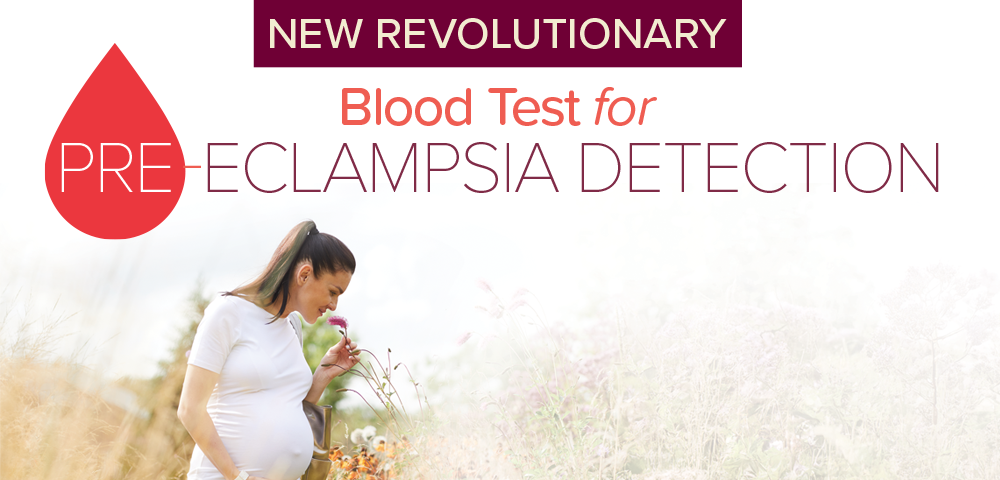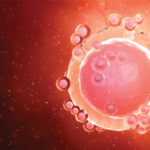
Pre-eclampsia can be difficult to diagnose early because its symptoms can often be mistaken for normal pregnancy-related changes
Pre-eclampsia is a serious pregnancy complication that affects both mothers and their babies, often emerging after the 20th week of pregnancy. Characterized by high blood pressure and damage to organs such as the kidneys, pre-eclampsia can lead to severe complications, including premature birth, organ failure, and even maternal or fetal death if left untreated.
The exact cause of pre-eclampsia remains unclear. It is believed to stem from abnormal blood vessel development in the placenta, leading to reduced blood flow to the baby and increasing the mother’s blood pressure.
Pre-eclampsia can be difficult to diagnose early because its symptoms – such as headaches, swelling, and vision changes – can often be mistaken for normal pregnancy-related changes, or there may be no symptoms at all. Traditionally, pre-eclampsia has been diagnosed through routine blood pressure checks and urine tests for protein. Early detection is critical, and this is where a new blood test shows promise.
The new pre-eclampsia blood test: How it works
This breakthrough blood test measures the ratio of two specific proteins in the blood – sFlt1 and PIGF – and can predict the onset of pre-eclampsia well before the symptoms appear. It can be used between 23 and 35 weeks of pregnancy, is highly accurate, and, unlike invasive procedures like amniocentesis, is non-invasive. It can be performed during a routine prenatal visit.
Recently published studies have found that measuring this ratio could predict pre-eclampsia with more than 90% accuracy, providing a powerful tool for early intervention.
What else can be done?
In addition to diagnostic workup, there are ways to support both the mother and the baby’s health in hopes of preventing pre-eclampsia. I always start with the basics: nutrition and activity. The importance of good nutrition – especially vegetables – during pregnancy can’t be stressed enough. Eating more vegetables pre-pregnancy and sticking to this habit has been shown to lower the risk of developing high blood pressure and pre-eclampsia.
I recommend that all my pregnant patients build and maintain a regular exercise routine during pregnancy, even those who did not exercise before pregnancy. One study showed that physical exercise interventions during pregnancy significantly reduced the risk of pregnancy-induced hypertension and pre-eclampsia by 39% and 41%, respectively. While the study did not identify the optimal length, intensity, or type of exercise, moderate walking alone effectively reduced blood pressure. So, for my pregnant patients who are at a high risk of hypertension in pregnancy, exercise is something I encourage even more strongly.
A few key supplements
VITAMIN D. A recent study found that vitamin D can reduce the cytokine storm during a COVID-19 infection in pregnancy. This storm is highly inflammatory and increases the risk of pre-eclampsia and high blood pressure. Regardless of vaccination or booster status, testing vitamin D levels in pre-conception and pregnancy is a priority for me, as is supplementing adequately to ensure adequate vitamin D stores, ideally between 100 and 150 nmol/L.
CALCIUM. Calcium supplementation may help reduce the risk of pre-eclampsia and help prevent preterm birth. A study published in The New England Journal of Medicine in 2024 found that a low dose of 500 mg of calcium daily is as effective as higher doses in reducing the likelihood of developing pre-eclampsia.
FOLIC ACID. Most pregnant women already take folic acid as part of their prenatal multivitamin to prevent neural tube defects. However, this vitamin’s benefits don’t stop there. A systematic review found that ensuring folic acid intake of 600–1000 mcg during pregnancy can lower the risk of pre-eclampsia.
MELATONIN. This hormone is produced by the mother’s pineal gland and passes through the placenta to the baby, in addition to being produced by cells in the placenta itself. As a potent antioxidant, it may reduce the severity of pregnancy conditions where oxidative stress plays a role, including pre-eclampsia. While research is still in its early stages, it may be worth asking your health care practitioner about melatonin as a complementary supplement to those already mentioned.
From the new pre-eclampsia blood test to effective preventative strategies, there is hope that pre-eclampsia will no longer be a mystery that emerges too late in pregnancy but rather a condition that can be effectively managed with timely interventions.












